 Meet Fictional Sam from our made-up office of Clear As Mud Financial Services (CAMFS) – This is #3 in a 4-part series of:
Meet Fictional Sam from our made-up office of Clear As Mud Financial Services (CAMFS) – This is #3 in a 4-part series of:
“IT is the Foundation of Business Success.”
Sam, the owner of CAMFS, has always taken cybersecurity seriously; at least, that’s what he thought. His IT provider set up firewalls, installed antivirus software, and even had a backup system in place.
Then, one day, he got the email.
The message was simple: “We have your data. Pay up, or we leak everything.”
No ransomware. No locked files. Just pure extortion.
Sam was blindsided. His firewalls hadn’t stopped the attack. His backups were useless. The hackers hadn’t encrypted his data; they’d stolen it.
And now, they had client financial records, employee details, and confidential business data in their hands.
The Rise of Data Extortion: No Encryption Necessary
For years, ransomware attacks worked like this:
- Hackers encrypt your files.
- You pay the ransom for a decryption key.
- You hope they actually give it to you.
Traditional ransomware defenses aren’t effective against data extortion. Why? They’re designed to prevent data encryption, not data theft. At 10D Tech, we go beyond traditional security measures; our layered cybersecurity solutions detect and prevent unauthorized data access before hackers can exploit it.
Cybercriminals have found a faster, easier, and even more ruthless way to make money. It’s called data extortion, and it’s growing fast.
How Data Extortion Works:
- Step 1: Data Theft – Hackers quietly infiltrate your system, stealing sensitive business and client data.
- Step 2: Extortion Threats – Instead of encrypting your files, they threaten to leak the data unless you pay.
- Step 3: No Decryption Needed – Since they’re not locking your files, traditional ransomware defenses can’t stop them.
In 2024 alone, over 5,400 businesses were hit with extortion-based attacks, a staggering 11% increase from the previous year. (Cyberint)
And here’s the scariest part: Even if you pay, hackers can still keep copies of your data and demand more money later.
Why Data Extortion Is Even Worse Than Ransomware
- Reputational Damage & Loss of Trust
If client or employee data gets leaked, it’s not just about losing information, it’s about losing credibility.
An example you might relate to: CAMFS had built a reputation as a trusted financial firm. But if word got out that they’d lost control of sensitive client records? Their business could collapse overnight.
- Compliance Violations & Regulatory Fines
Data breaches don’t just bring bad PR; they bring expensive penalties, some examples ….
- GDPR fines?
- HIPAA violations? Expect them.
- PCI DSS noncompliance? Say goodbye to processing payments.
- Legal & Financial Fallout
Leaked client data can lead to lawsuits, fines, and settlements that could bankrupt a small or midsize business.
An example you might relate to: After a similar breach, a competitor of CAMFS was sued by multiple clients for failing to protect their personal and financial information.
- The Never-Ending Extortion Cycle
Paying the hackers doesn’t make them go away. They can:
- Come back months later, demanding more.
- Sell stolen data on the dark web, putting you at even greater risk.
- Use leaked credentials to launch future attacks.
Once your data is in their hands, you’ve lost control.
Why Are Hackers Ditching Encryption?
Because data extortion is faster, harder to detect, and more profitable.
- Encryption takes time. Stealing data is instant.
- Traditional antivirus can detect ransomware. Data theft can look like normal network traffic.
- A locked system is a technical problem. Leaked data is a PR nightmare.
Example: Hackers targeted financial firms last year by infiltrating email servers, quietly extracting client data, and demanding $250,000 to keep it private.
No, Traditional Defenses Aren’t Enough
Sam thought he had good cybersecurity. But like many business owners, he was protecting against yesterday’s threats.
- Firewalls? Can’t stop hackers who already have access.
- Antivirus? Only stops known threats, not stealthy data theft.
- Backups? Great for recovery, useless against extortion.
Cybercriminals have evolved. Has your security?
How to Protect Your Business from Data Extortion
- Implement a Zero Trust Security Model
Assume no one and nothing can be trusted … until verified.
- Require multifactor authentication (MFA) on all accounts.
- Use strict access controls so employees only see what they need.
- Continuously monitor devices connecting to your network.
- Deploy Advanced Threat Detection & Data Leak Prevention (DLP)
Basic antivirus isn’t enough. Advanced threat detection and data leak prevention (DLP) can help monitor cloud environments for suspicious activity.
You need:
- AI-driven monitoring that detects unusual data transfers.
- Real-time alerts for unauthorized access attempts.
- Cloud security tools to protect remote work environments.
- Encrypt Sensitive Data at Rest & In Transit
Even if hackers steal your files, encryption makes them useless.
- Use end-to-end encryption on all business-critical data.
- Implement secure email and communication protocols.
- Regular Backups & Disaster Recovery Planning
Backups won’t stop extortion, but they can prevent data loss.
- Store backups offline to protect against cyberattacks.
- Test backups regularly to ensure they actually work.
- Train Employees to Recognize Attacks
Your team is your first … and best … defense.
- Teach employees to spot phishing attempts and social engineering tactics.
- Require regular cybersecurity training for all staff.
- Have a clear process for reporting suspicious emails and login requests.
Are You Prepared for the Next Generation of Cyberattacks?
Sam thought his business was safe until hackers stole and threatened to leak his client data.
💡 Cybercriminals have adapted. Have you?
- Start with a FREE Network Assessment.
Cybercriminals are evolving. Make sure your security strategy is too with 10D Tech’s cybersecurity expertise, you’ll stay protected against data extortion and beyond. Get your FREE Network Assessment today!
📞 Call us in Albany / Corvallis / Bend / Eugene - (541) 243-4103 or Portland / Salem (971) 915-9103 or click here to schedule your free assessment today.
Next week Part 4 of 4: The Dark Side of Chatbots: Who’s Really Listening to Your Conversations?
Your data is your business. Protect it before hackers take control.







